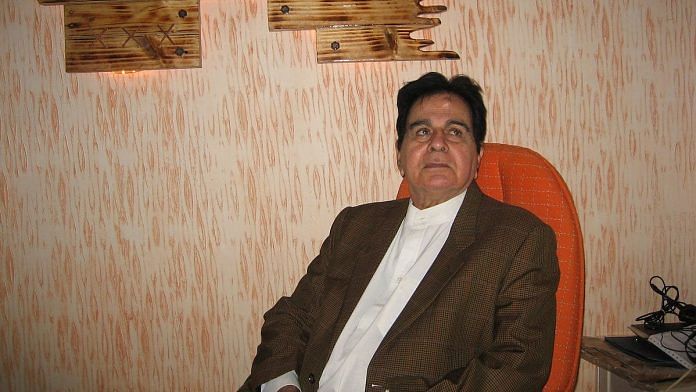
Mumbai: Dilip Kumar, India’s enduring film legend through the decades, died at a Mumbai hospital on Wednesday after prolonged illness, his family and doctors treating him said. He was 98.
The actor, known to generations of film-goers as tragedy king’ for his portrayal of the brooding, intense romantic in classics such as Mughal-e-Azam and Devdas , had been admitted to the Hinduja Hospital, a non-COVID-19 facility in Khar, since last Tuesday.
He passed away due to prolonged illness at 7.30 am, Dr Jalil Parkar, who had been treating Kumar, told PTI.
“With a heavy heart and profound grief, I announce the passing away of our beloved Dilip Saab, few minutes ago. We are from God and to Him we return,” family friend Faisal Farooqui posted from the actor’s Twitter handle at 8.01 am.
Kumar, who was married to actor Saira Banu, had been in and out of hospital the last one month and his family had hoped that he would get better.
The Hindi cinema veteran, the last of the golden troika with Raj Kapoor and Dev Anand, was admitted to hospital last month following episodes of breathlessness.
He was then diagnosed with bilateral pleural effusion, a build-up of excess fluid between the layers of the pleura outside the lungs, and underwent a successful pleural aspiration procedure. He was discharged after five days only to be admitted to the hospital again.
Kumar, born Yousuf Khan and often known as the Nehruvian hero, did his first film Jwar Bhata in 1944 and his last Qila in 1998, 54 years later. The five-decade career included “Mughal-e-Azam”, “Devdas”, “Naya Daur”, and “Ram Aur Shyam”, and later, as he graduated to character roles, Shakti and Karma .
Subscribe to our channels on YouTube & Telegram
Why news media is in crisis & How you can fix it
India needs free, fair, non-hyphenated and questioning journalism even more as it faces multiple crises.
But the news media is in a crisis of its own. There have been brutal layoffs and pay-cuts. The best of journalism is shrinking, yielding to crude prime-time spectacle.
ThePrint has the finest young reporters, columnists and editors working for it. Sustaining journalism of this quality needs smart and thinking people like you to pay for it. Whether you live in India or overseas, you can do it here.